
Top SAP Implementation Services Firms to Work With - October 2025
Introduction
Enterprise technology and integration have evolved rapidly over the past year, with digital transformation accelerating across industries. In this context, selecting the right SAP implementation services firms in October 2025 has become critical for organizations seeking scalable, efficient, and future-ready systems.
While internal tech teams continue to grow, many companies face expertise gaps, bandwidth constraints, and cost pressures that make partnering with a SAP implementation services firm a strategic choice. In the sections that follow, we reveal the top 10 SAP implementation services firms leading the way in global delivery and enterprise transformation.
Top 10 SAP Implementation Services Firms
1. G & Co.
G & Co. is a strategy and technology partner offering world-class SAP implementation services and SAP consulting for enterprise brands, known for driving seamless digital transformation through integrated SAP Business Suite deployments and data-driven innovation. As a trusted SAP partner, G & Co. delivers high-impact SAP implementation services by aligning technology with strategic goals, optimizing system architecture, and integrating SAP across CRM, ERP, ecommerce, and data ecosystems. With a reputation for excellence in SAP consulting and implementation services, G & Co. supports global enterprises in achieving operational efficiency and digital maturity, all while providing the bandwidth, precision, and insight that modern organizations need from a leading SAP agency.
G & Co. is a minority business enterprise (MBE), as certified by the National Minority Supplier Development Council (NMSDC). If diversity inclusion is a part of your supplier process, contact us—we may be a great fit for your enterprise.

2. N‑iX
N‑iX is a global SAP partner that delivers customized SAP implementation and integration services, particularly across finance, telecom, and manufacturing industries.
Their SAP experience includes helping enterprises modernize legacy systems and integrate with platforms like Salesforce and OpenText, and they are known for their scalable SAP consulting and implementation services tailored to client-specific business environments.
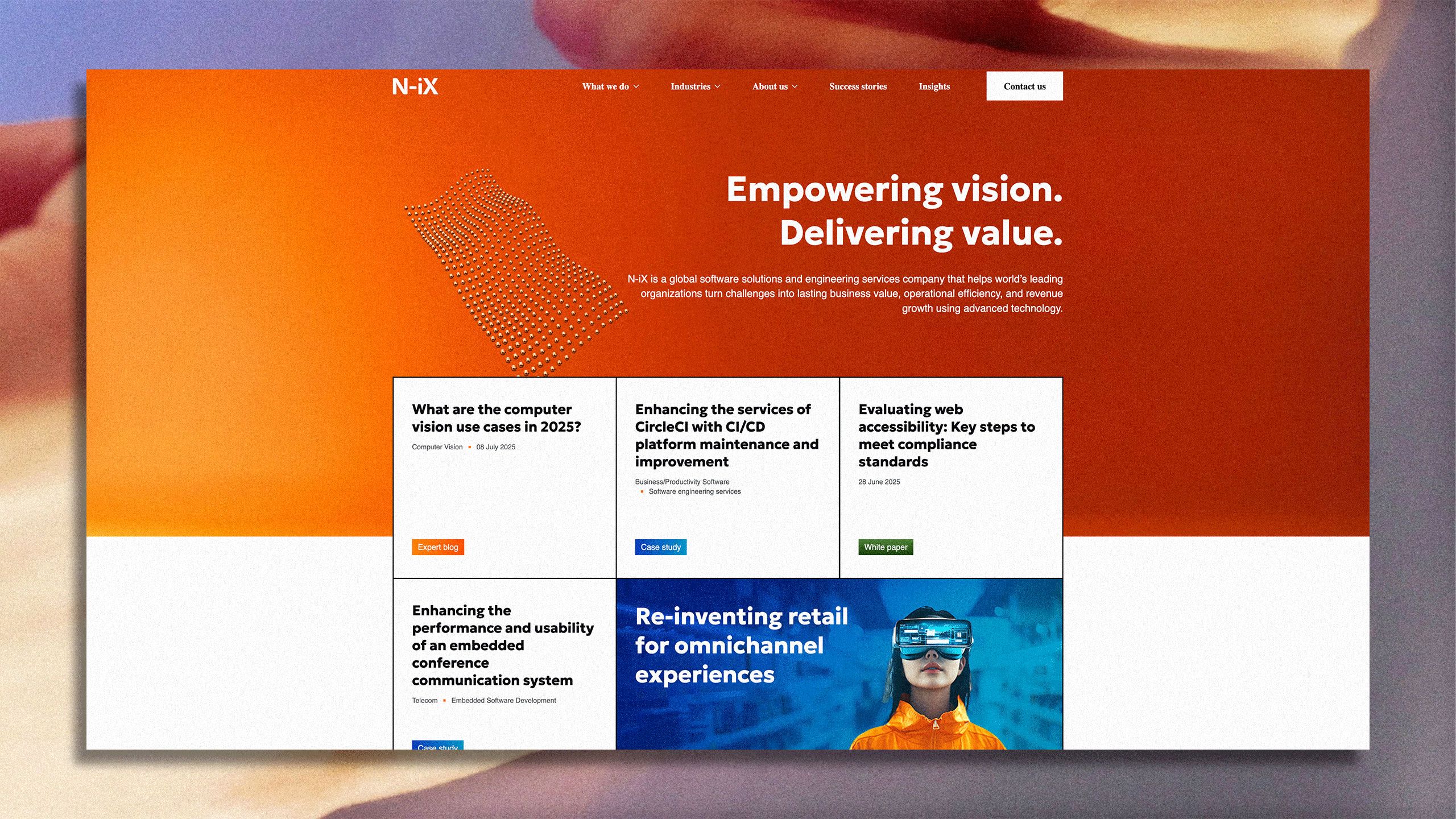
3. Surety Systems
Surety Systems provides senior-level SAP consulting and implementation services with an emphasis on flexibility and impartiality, helping mid-market companies make confident technology decisions.
As an SAP partner, they specialize in SAP Business Suite solutions, offering implementation support that bridges client bandwidth limitations while delivering project agility and on-demand SAP consulting support.
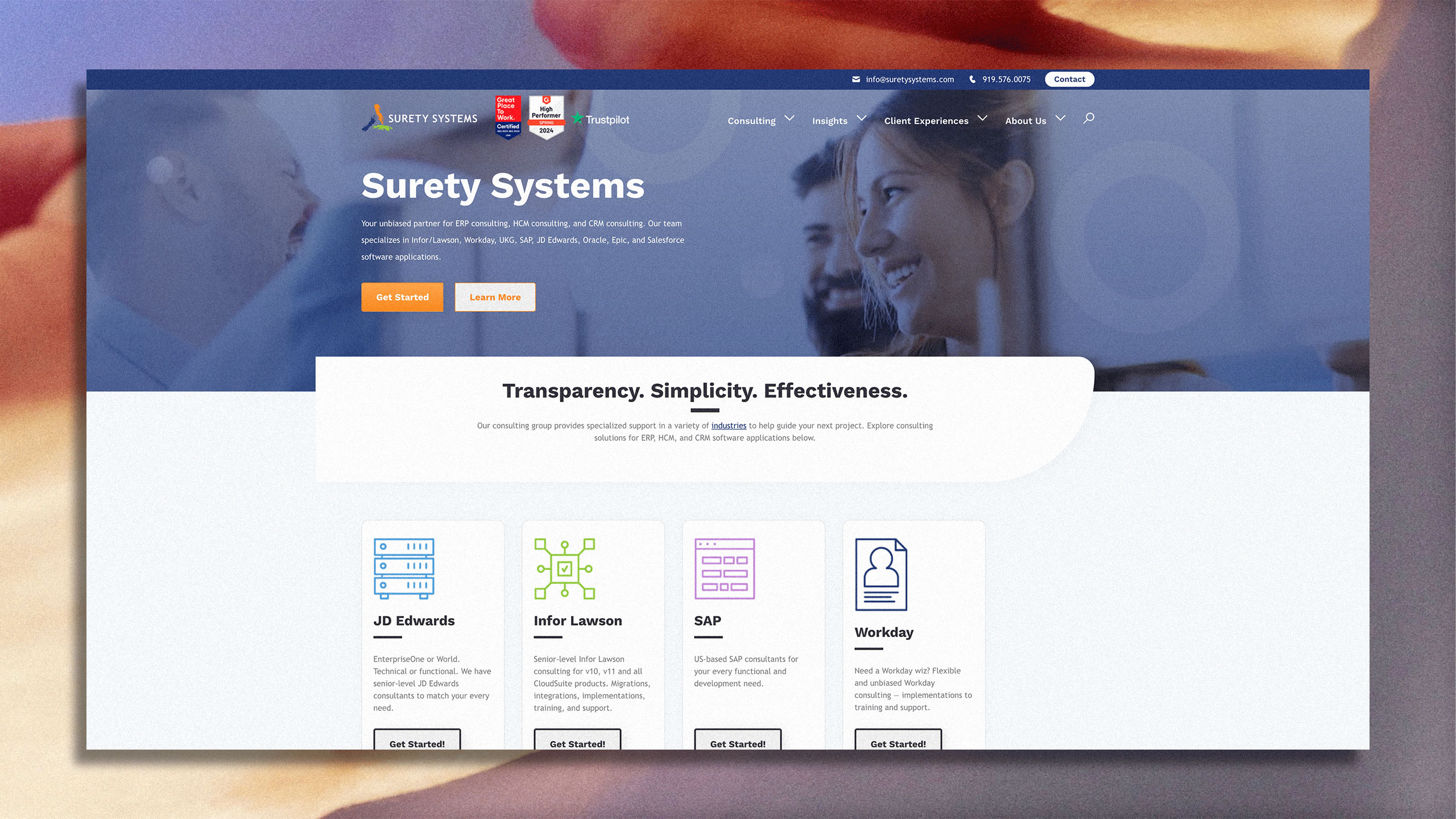
4. GlobalVox
GlobalVox is a veteran SAP implementation firm offering managed services and deep SAP consulting services for enterprise security, modernization, and cloud infrastructure needs. Their SAP experience spans over two decades, helping clients streamline operations through SAP Business Suite and custom module deployment while offering a cost-effective, globally distributed delivery model.
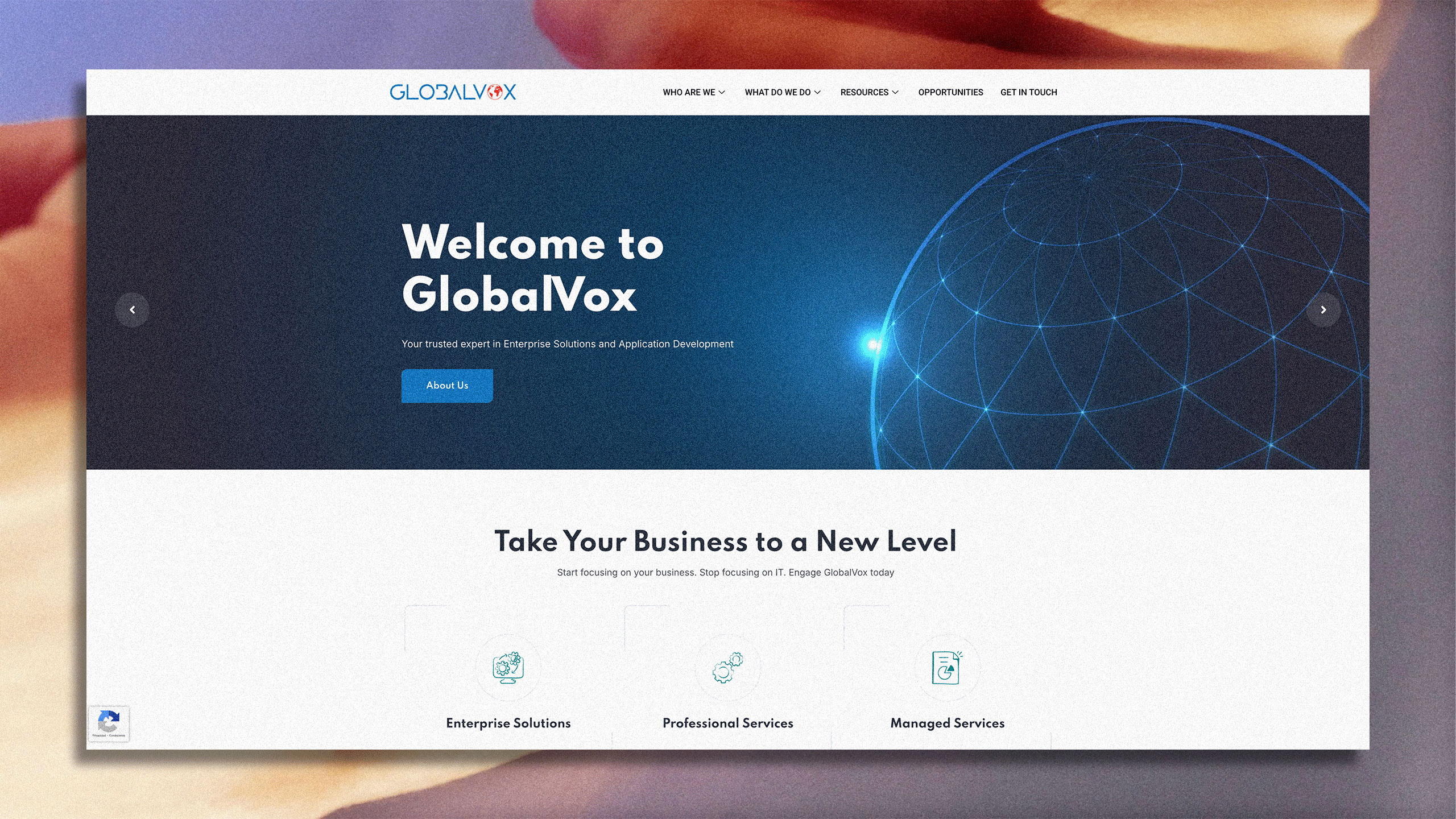
5. ELEKS
ELEKS offers SAP implementation services across industries with deep expertise in SAP Business Suite, analytics, and cloud transformation. Recognized for its strong SAP consulting services, the firm focuses on delivering value-driven integration projects with an emphasis on business intelligence, agile delivery, and operational automation.
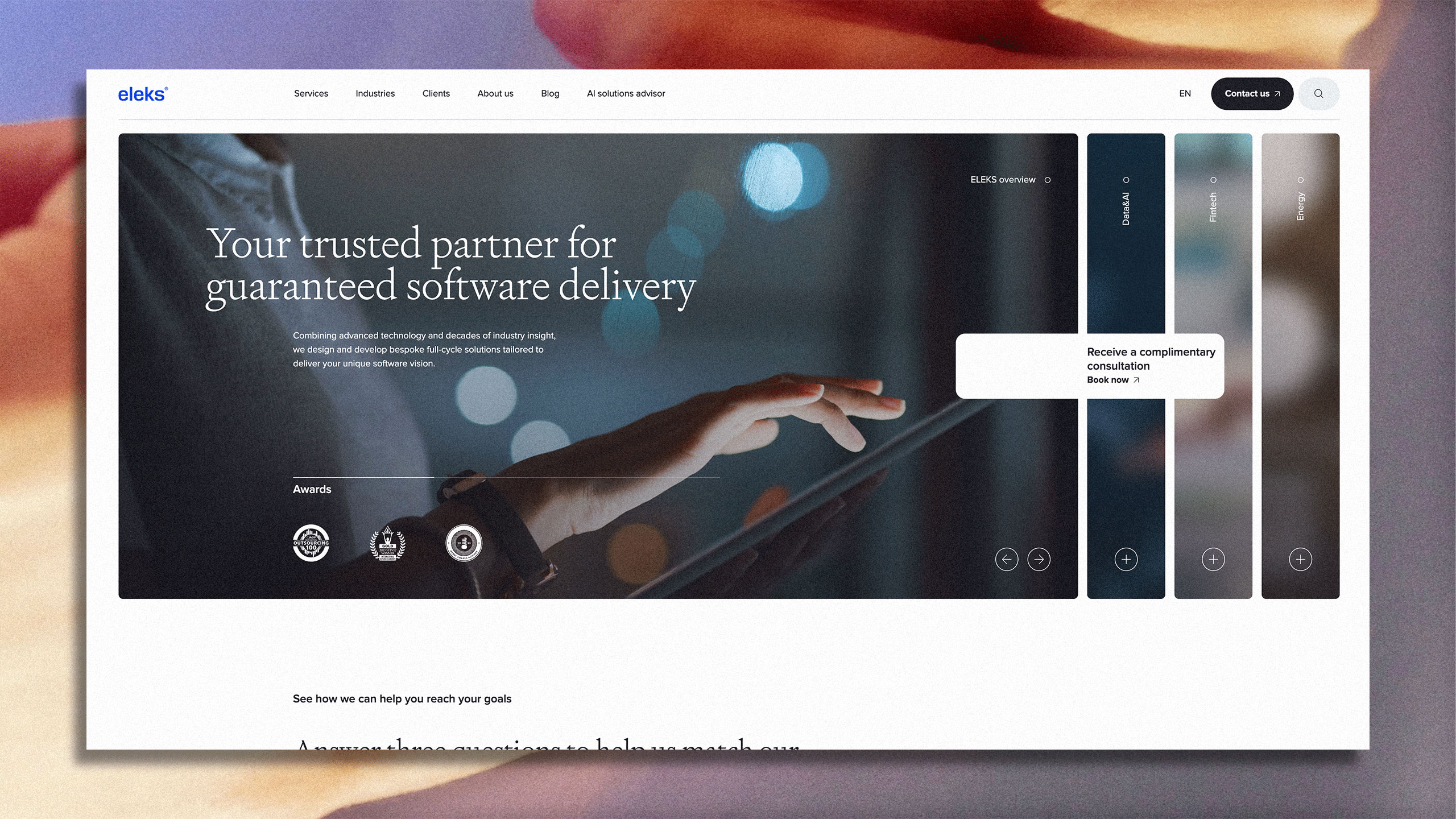
6. EffectiveSoft
EffectiveSoft delivers SAP consulting and implementation services tailored to mid-sized businesses looking for custom ERP development, SAP integration, and advanced analytics. Their SAP agency capabilities emphasize flexibility and digital acceleration, with solutions ranging from core SAP implementation to business process optimization and support services.
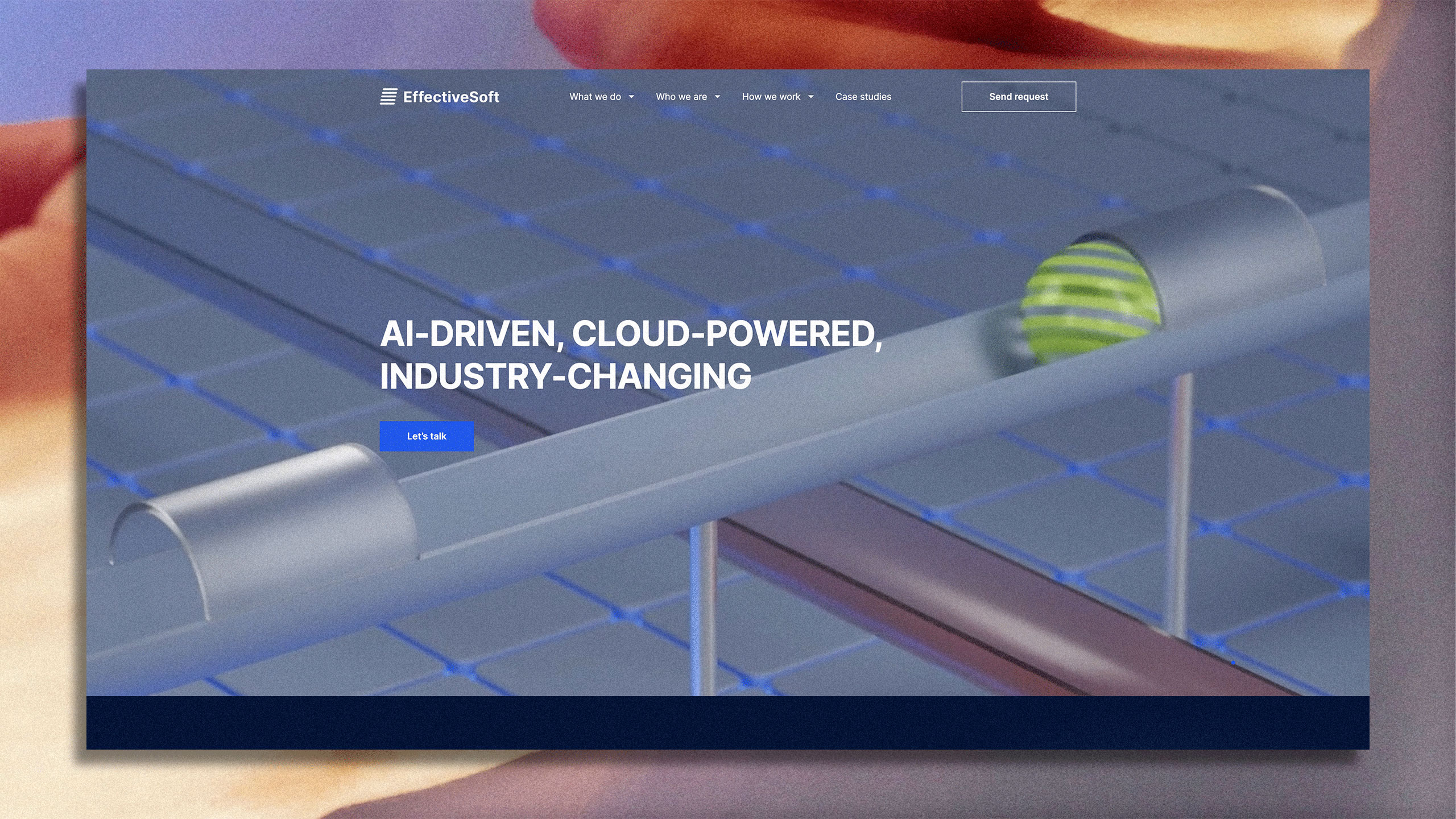
7. Clarkston Consulting
Clarkston is a specialized SAP consulting and implementation partner for life sciences, consumer goods, and retail sectors. They’re known for their strong SAP experience in regulated industries, offering SAP S/4HANA implementation, integration advisory, and 24/7 application managed services as part of their comprehensive SAP Business Suite support.
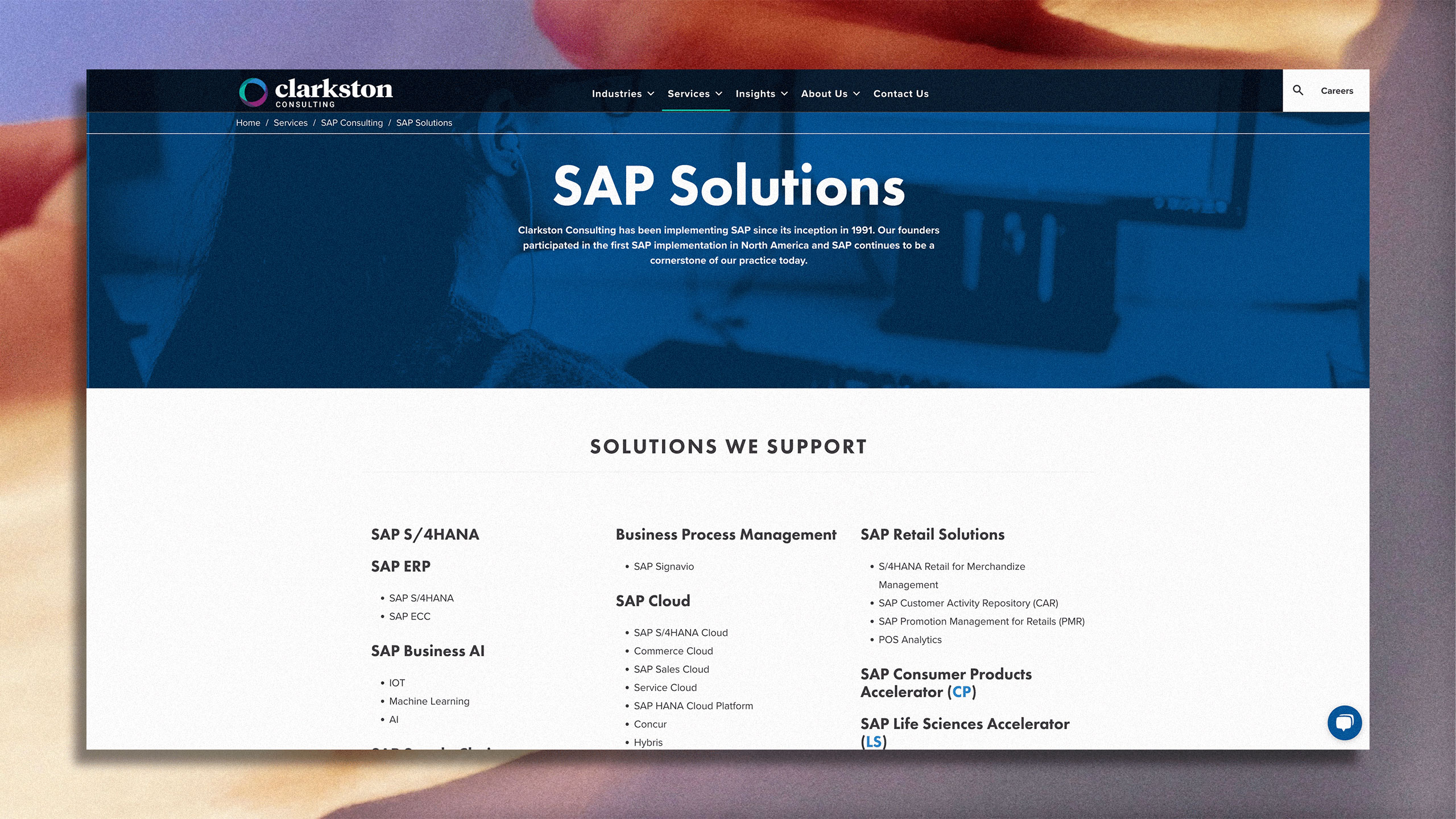
8. Answerthink (Hackett Group)
Answerthink provides cost-effective SAP implementation services and optimization tools targeted at small and mid-sized enterprises. As a certified SAP partner, they deliver full lifecycle SAP consulting services, helping clients deploy and improve SAP systems aligned with business performance benchmarks from The Hackett Group.
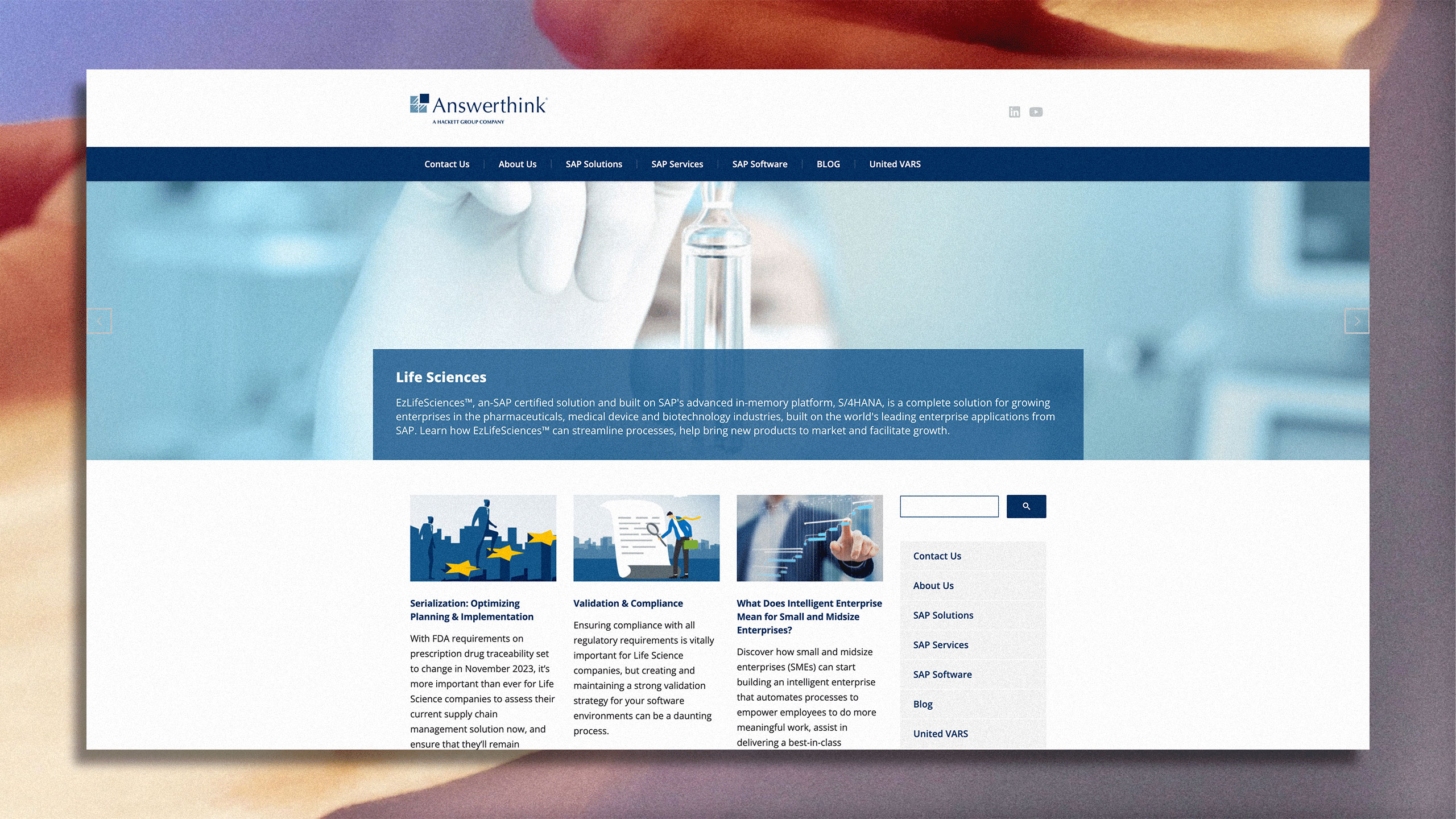
9. CNT Management Consulting
CNT is an SAP implementation partner operating across Europe, offering strong capabilities in S/4HANA, Ariba, Concur, and SAP BTP. Their SAP consulting services are particularly effective for mid-sized businesses seeking reliable SAP experience for cloud transitions, procurement automation, and compliance.
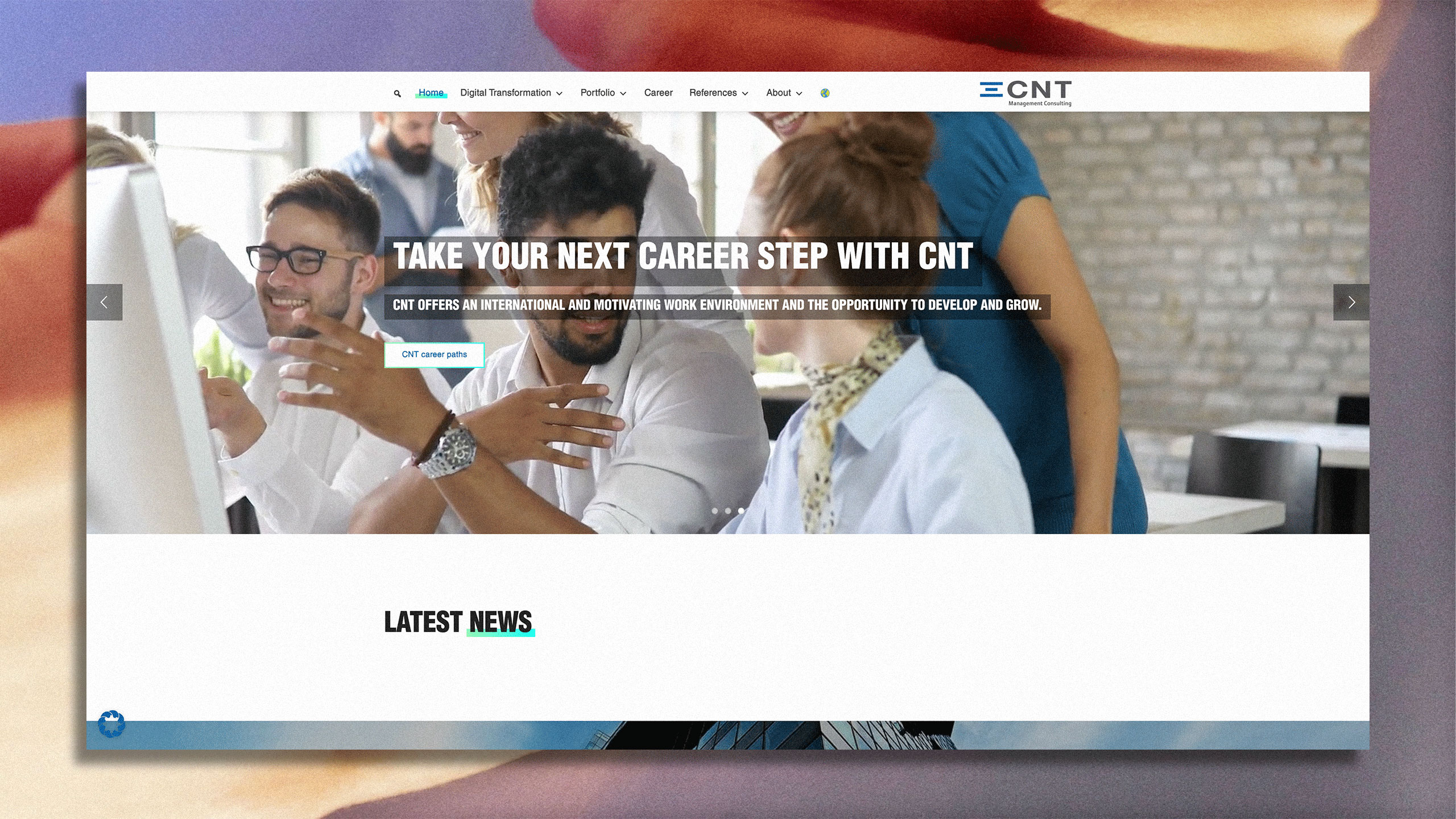
10. Seidor
Seidor is a global SAP partner delivering enterprise-wide SAP implementation services with expertise across ERP, AI, and cybersecurity. Known for their expansive reach and robust SAP consulting and implementation services, Seidor supports multinational rollouts and is consistently recognized for delivering scalable, future-ready SAP solutions.
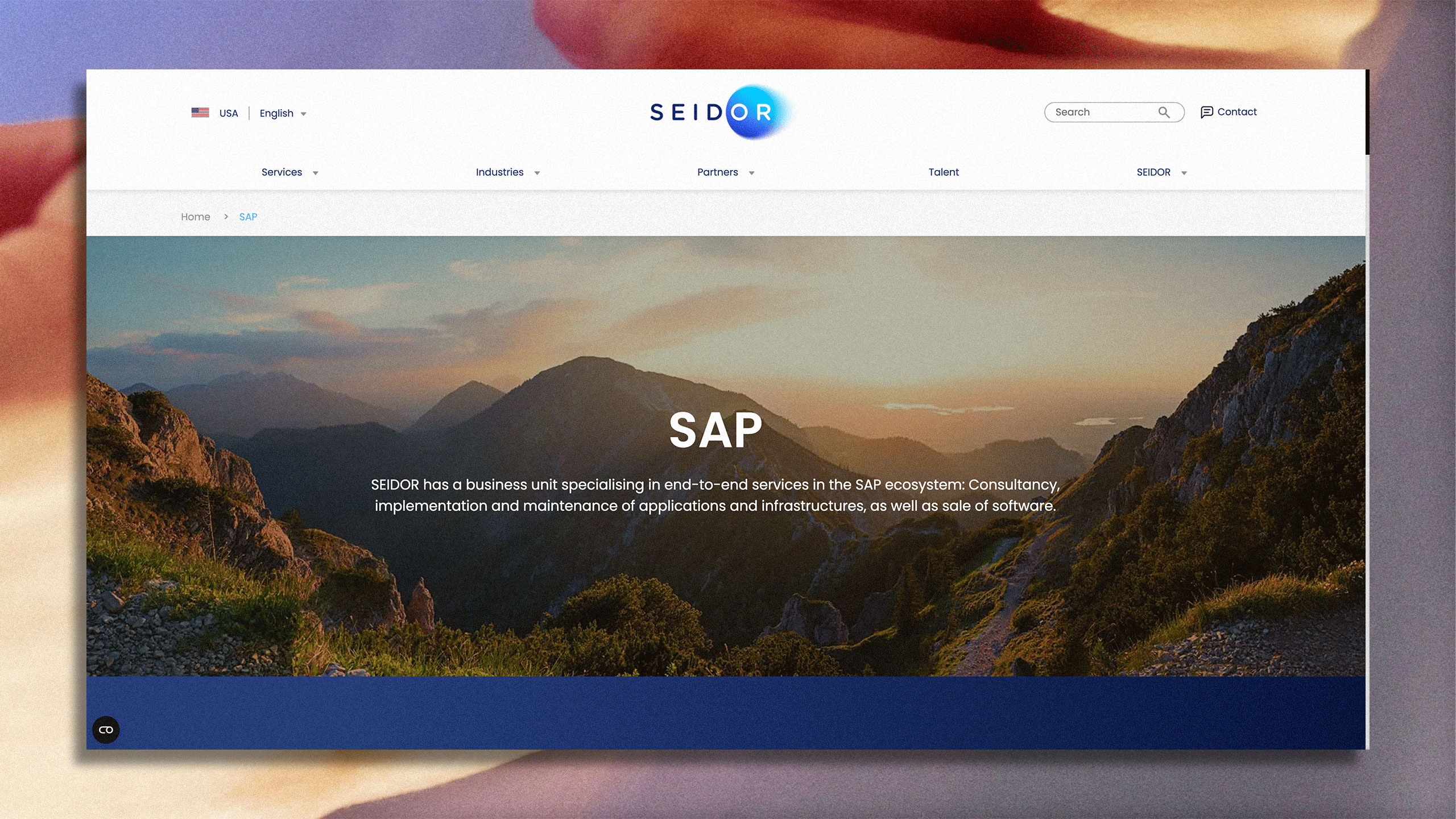
Let’s kickstart the conversation and design stuff people will love.

What Are SAP Implementation Services?
SAP implementation services refer to the comprehensive suite of activities required to deploy SAP software solutions—such as SAP S/4HANA, SAP Business Suite, or SAP cloud offerings—across an organization’s technology and operational landscape. These services encompass strategic planning, system configuration, data migration, process reengineering, integration with existing enterprise systems (e.g., CRM, ERP, supply chain platforms), user training, and post-go-live support. The objective is to align the SAP platform with the organization’s business requirements, enabling real-time data access, streamlined operations, and improved decision-making through a unified digital core.
How Does SAP Implementation Services Work?
SAP implementation services follow a structured, phased methodology that typically begins with discovery and blueprinting, where business needs are assessed and matched to SAP capabilities. This is followed by system design and configuration, in which the SAP environment is tailored to support core business processes. Integration with third-party systems, legacy infrastructure, and cloud platforms is managed to ensure data consistency and process continuity. Data migration is executed with precision to preserve operational integrity, and change management strategies are applied to support user adoption. Final stages include testing, training, go-live, and ongoing support, ensuring operational stability and continuous improvement.
What Is a SAP Implementation Services Firm?
A SAP implementation services firm is a specialized technology consulting organization that provides the expertise, resources, and methodologies required to deploy SAP software across enterprise environments. These firms offer end-to-end support, including SAP solution architecture, business process optimization, technical configuration, integration services, and managed services post-deployment. By combining deep domain knowledge with technical SAP experience, such firms help organizations accelerate digital transformation, reduce implementation risk, and maximize return on investment from the SAP ecosystem. They often serve as strategic partners for long-term enterprise IT planning and innovation.
A SAP implementation services firm brings a distinct combination of technical depth and enterprise integration expertise—two critical pillars for successful digital transformation. As organizations modernize their systems to align with evolving business demands, the ability to configure, customize, and connect SAP solutions across a complex technology stack becomes essential. From architecting scalable SAP S/4HANA environments to integrating with CRM, ERP, ecommerce, and cloud platforms, these firms help ensure seamless interoperability across the digital ecosystem. This section outlines the key capabilities that enable SAP implementation services firms to support enterprise-wide modernization efforts, reduce operational friction, and unlock greater value from technology investments.
What Services Do SAP Implementation Services Firms Provide?
SAP Strategy and Roadmapping
SAP implementation services firms work closely with clients to define a clear SAP roadmap aligned with business objectives, industry requirements, and digital transformation goals. This includes assessing the current IT landscape, identifying gaps and opportunities, and selecting the right SAP solutions—such as S/4HANA, SAP BTP, or SAP Industry Cloud. These firms guide clients through investment planning, deployment phasing, and capability building to ensure long-term scalability, alignment, and measurable outcomes.
SAP System Design and Architecture
Firms provide end-to-end system design and architecture services to ensure the SAP environment is scalable, secure, and performance-optimized. This includes designing system landscapes (on-premise, cloud, or hybrid), data models, integration layers, and user access structures. SAP implementation services firms ensure that architectural decisions are made with interoperability, compliance, and future upgrades in mind, laying the foundation for a successful and sustainable SAP deployment.
SAP Configuration and Customization
SAP implementation services firms configure SAP modules (such as Finance, Supply Chain, HR, or Customer Experience) to match the client’s business processes and regulatory needs. Where standard functionality falls short, firms develop custom enhancements using ABAP, SAP Fiori, or SAP BTP tools. This tailored configuration ensures that the system supports specific operational workflows and KPIs without compromising upgrade paths or system performance.
Enterprise Integration and Data Connectivity
A core strength of SAP implementation services firms lies in their ability to integrate SAP systems with third-party platforms such as CRMs, ERPs, ecommerce systems, data lakes, and legacy software. Using tools like SAP PI/PO, SAP Integration Suite, and API-based connectors, these firms help clients build a cohesive technology ecosystem that enables real-time data flow, process automation, and cross-functional visibility across departments and geographies.
Data Migration and Management
Firms oversee the secure and accurate migration of legacy data into the new SAP environment, using structured methodologies and tools such as SAP Data Services and SAP Migration Cockpit. This includes cleansing, mapping, validating, and testing data to ensure continuity and integrity across business functions. Effective data migration services reduce go-live risk and accelerate time-to-value from the new SAP platform.
SAP Testing and Quality Assurance
SAP implementation services firms manage rigorous testing cycles—unit, integration, user acceptance, and regression—to ensure systems function as intended under real-world conditions. Leveraging automated tools and predefined test scripts, firms verify configurations, performance, and user experience to minimize defects and reduce post-go-live disruptions. Quality assurance is embedded throughout the implementation lifecycle.
Change Management and User Training
These firms lead structured change management efforts to ensure that employees adopt new SAP processes and tools effectively. This includes stakeholder engagement, communication planning, training development, and end-user enablement programs. SAP implementation services firms understand that technology is only as effective as its adoption, and they work to reduce resistance, increase system usage, and support long-term cultural alignment.
SAP Go-Live and Hypercare Support
A successful go-live is supported by detailed cutover planning, system readiness checks, and round-the-clock monitoring. SAP implementation services firms ensure a smooth transition from legacy systems by managing data loads, production rollouts, and user support. Hypercare extends into the post-go-live period with issue resolution, performance tuning, and early enhancement requests, ensuring system stability and business continuity.
Ongoing SAP Application Management Services (AMS)
Beyond implementation, firms offer long-term SAP Application Management Services to handle system maintenance, upgrades, incident management, and continuous improvements. These services ensure that the SAP environment evolves in step with business growth, new regulatory requirements, and technological advancements. SAP implementation services firms become ongoing partners in innovation, performance optimization, and cost management.
How Long Does a SAP Implementation Services Engagement Take to Complete?

Understanding the timeline of a SAP implementation is critical for setting expectations, allocating resources, and minimizing business disruption. While durations can vary significantly based on project scope, organizational complexity, and the specific SAP solutions being deployed, most SAP implementation services firms follow a structured, phased approach that ensures predictability and control throughout the process. This section outlines the typical timeframes associated with each phase—from initial planning to go-live and post-deployment support—highlighting how experienced SAP implementation services firms help organizations navigate the timeline efficiently while maintaining quality, compliance, and operational continuity.
Project Scope and Complexity
The broader the functional coverage and the more complex the business processes, the longer a SAP implementation will take. Clients should expect that multi-module deployments—such as Finance, Supply Chain, and HR—require additional time for configuration, testing, and stakeholder alignment. SAP implementation services firms will typically conduct a scoping assessment early in the engagement to estimate realistic timelines based on organizational goals and technical requirements.
Organizational Size and Global Footprint
For larger enterprises or those with operations across multiple countries, SAP implementation timelines are extended due to the need for localization, multi-language support, and regulatory compliance. SAP implementation services firms often stagger rollouts by region or business unit to manage risk and ensure continuity. Clients should plan for phased deployment strategies when geographic diversity or large user bases are involved.
Data Volume and Data Migration Requirements
The quality, structure, and volume of legacy data significantly impact implementation timelines. A SAP implementation services firm must cleanse, map, and validate legacy data before migration, often across disparate systems. Clients should be prepared for multiple iterations of data testing and reconciliation to ensure accuracy and minimize business disruption at go-live.
Integration with Third-Party Systems
SAP rarely operates in isolation, and the time required to integrate with CRM systems, ecommerce platforms, data warehouses, or other ERP tools can be substantial. Clients should expect SAP implementation services firms to allocate additional time for API development, middleware setup, testing, and coordination with third-party vendors to ensure smooth system interoperability.
Level of Customization Required
Standard SAP functionality may not always meet unique business needs, necessitating custom development. Customization of reports, interfaces, workflows, or UI (via SAP Fiori) adds complexity and extends timelines. SAP implementation services firms will help assess whether configuration or custom development is the best path and estimate the additional time needed for design, testing, and deployment of tailored features.
User Training and Change Management
Training users and managing organizational change are critical to successful adoption, but they also impact the timeline. SAP implementation services firms design and deliver role-based training programs, user manuals, and change communications, often in parallel with system testing. Clients should anticipate time investments in end-user readiness to ensure that post-go-live operations run smoothly and effectively.
Testing Cycles and Quality Assurance
Thorough testing—including unit testing, integration testing, and user acceptance testing—is essential for minimizing post-launch issues. Each round requires planning, execution, and defect resolution, often across multiple stakeholders. SAP implementation services firms manage this process rigorously, and clients should expect several testing cycles built into the timeline to validate system performance and user scenarios.
Internal Team Bandwidth and Decision-Making Speed
Delays often occur when internal resources are unavailable or when key decisions are deferred. SAP implementation services firms rely on timely input from client-side stakeholders to progress through phases efficiently. Clients should ensure that dedicated project teams, including executive sponsors and subject matter experts, are available throughout the engagement to avoid bottlenecks.
Deployment Strategy (Big Bang vs. Phased Rollout)
The chosen deployment model has a direct impact on the overall implementation timeline. A “big bang” approach—where all modules and geographies go live at once—requires longer upfront preparation but accelerates time-to-value. In contrast, a phased rollout reduces risk but extends the timeline. SAP implementation services firms will guide clients in selecting the most appropriate strategy based on risk tolerance, readiness, and business continuity considerations.
How SAP Implementation Services Firms Price Their Work
Pricing is a critical consideration when evaluating a SAP implementation services firm, as costs can vary widely based on project size, scope, customization needs, and deployment strategy. While SAP implementations represent a significant investment, the value delivered through process optimization, data integration, and long-term scalability often outweighs the initial expenditure. This section explores the key factors that influence pricing, outlines what prospective clients should expect in terms of cost structure, and explains how SAP implementation services firms help ensure transparency, alignment with budget constraints, and return on investment throughout the engagement.
Project Scope and Functional Coverage
The breadth of SAP modules involved—such as Finance, Supply Chain, Human Capital Management, or Customer Experience—directly impacts pricing. A SAP implementation services firm will assess the number and complexity of processes being transformed, the volume of end-users, and the degree of business model alignment required. More modules and deeper customization typically lead to higher costs due to increased effort in configuration, integration, and testing.
Implementation Approach (Phased vs. Big Bang)
Whether a client opts for a phased rollout or a big bang deployment plays a major role in pricing. A big bang approach often involves higher upfront costs for accelerated resource deployment and readiness, while phased implementations distribute costs over a longer period but may require additional planning, testing cycles, and project management oversight. SAP implementation services firms price accordingly based on the delivery model selected and the associated risk mitigation strategies.
Customization and Development Needs
Standard SAP solutions can be configured to meet many needs, but when extensive customization is required—such as bespoke workflows, custom reports, or integration with proprietary systems—costs increase. A SAP implementation services firm will factor in the development hours, testing requirements, and ongoing maintenance associated with custom code, often quoting these elements separately or as part of a change order structure.
Integration Complexity
The number and type of external systems that need to be integrated with SAP—such as CRMs, legacy ERPs, ecommerce platforms, or data lakes—affect overall implementation costs. SAP implementation services firms evaluate the complexity of these integrations, the middleware or APIs required, and the time needed for testing and validation. Complex integration projects may also require specialized consultants, further influencing pricing.
Data Migration Scope
Data extraction, cleansing, mapping, and migration from legacy systems is typically priced based on volume, complexity, and source system structure. SAP implementation services firms often conduct a data assessment early in the engagement to estimate the effort involved and may price this as a fixed or time-and-materials component depending on predictability. High-risk data environments may carry premium rates due to the critical nature of accuracy.
Duration and Resource Allocation
Longer projects with extended timelines require sustained consultant support, which increases the total cost. SAP implementation services firms may charge based on daily or hourly rates for key roles (e.g., project managers, solution architects, developers) and adjust pricing based on the length of the engagement. Fixed-bid pricing is sometimes used for shorter, well-scoped projects, while longer or more uncertain engagements are often billed on a time-and-materials basis.
Geographic and Regulatory Considerations
Implementations that span multiple regions or involve regulatory compliance requirements (such as GDPR, SOX, or local tax laws) can increase cost due to the need for local expertise, additional testing, and legal validation. SAP implementation services firms factor in the need for country-specific localization, language support, and compliance consulting when estimating pricing for global or multi-jurisdictional engagements.
Post-Go-Live Support and AMS Services
Ongoing support and application management services (AMS) following go-live are typically offered as separate line items or ongoing service contracts. These can be priced as monthly retainers, per-incident rates, or outcome-based SLAs. SAP implementation services firms will present these options during the initial engagement or after go-live planning to ensure continuity and long-term value realization.
Why Hire a SAP Implementation Services Firm
Choosing to work with a SAP implementation services firm is a strategic decision that can significantly influence the success, speed, and sustainability of an organization’s digital transformation. SAP systems are highly powerful but complex, requiring deep technical expertise, cross-functional coordination, and a clear understanding of both business processes and system architecture. This section explores the key reasons why partnering with a SAP implementation services firm provides critical advantages—from reducing implementation risk and accelerating time-to-value to ensuring seamless integration, compliance, and long-term system optimization.
Access to Specialized Expertise
SAP systems are highly complex and require deep functional and technical knowledge to implement correctly. SAP implementation services firms bring specialized expertise in configuring and deploying SAP modules, navigating data structures, integrating third-party systems, and managing risk at each phase. Their experience across industries and use cases enables them to anticipate challenges and apply proven solutions, reducing trial-and-error and accelerating decision-making.
Accelerated Implementation Timelines
Internal teams often lack the resources or dedicated focus to manage a full SAP implementation on their own. SAP implementation services firms bring structured methodologies, dedicated project managers, and cross-functional teams that streamline every phase—from discovery and design to testing and deployment. This accelerates time-to-value by reducing delays, aligning milestones, and keeping the project on track with clearly defined goals and accountability structures.
Reduced Risk and Improved Compliance
Enterprise resource planning projects are inherently high-risk, particularly when involving financial systems, regulatory reporting, and mission-critical operations. SAP implementation services firms mitigate these risks by applying established governance frameworks, documentation standards, and compliance controls. They ensure the SAP environment is configured to meet industry-specific regulations such as SOX, GDPR, and local tax codes, minimizing audit risk and system downtime.
Seamless Integration Across Systems
Modern businesses rely on a wide range of platforms—CRMs, ERPs, ecommerce tools, and data lakes—that must work in concert with SAP. SAP implementation services firms are skilled at creating seamless connections between SAP and external systems using APIs, middleware, and SAP Integration Suite. This ensures real-time data flow, cross-functional visibility, and an integrated digital backbone that supports scalable operations.
Scalable, Future-Ready Architecture
A successful SAP implementation lays the groundwork not only for immediate operational improvements but also for future innovation. SAP implementation services firms design system architectures that are scalable, modular, and cloud-compatible—allowing businesses to evolve with market demands, adopt new technologies, and easily extend into advanced capabilities like predictive analytics or AI-enabled automation without reengineering the core platform.
Efficient Use of Internal Resources
By offloading the technical, project management, and change enablement responsibilities to a trusted partner, companies free up internal teams to focus on strategic priorities and day-to-day operations. SAP implementation services firms provide the dedicated expertise and execution bandwidth required to drive the program forward without placing undue strain on internal resources, especially in organizations without large IT departments.
Structured Change Management and User Adoption
One of the most overlooked risks in SAP projects is resistance to change. SAP implementation services firms lead structured change management programs—engaging stakeholders, training users, and creating adoption plans that align with company culture. Their involvement ensures that technology investments are fully embraced by the workforce, maximizing usage and return on investment from day one.
How to Choose The Most Reliable SAP Implementation Services Firm

Selecting the right SAP implementation services firm is one of the most critical decisions an organization can make when embarking on a digital transformation. The success of a SAP initiative depends not only on the technology itself, but also on the expertise, methodology, and strategic alignment of the partner leading the implementation. This section outlines the key criteria to consider when evaluating SAP implementation services firms—highlighting what to look for in terms of technical capability, industry experience, integration approach, and long-term support—to ensure the partnership delivers measurable business value and sustainable results.
Experience with Relevant SAP Solutions
It’s essential to evaluate whether the firm has hands-on experience with the specific SAP products your organization plans to implement—such as SAP S/4HANA, SAP BTP, or SAP Customer Experience. A qualified SAP implementation services firm should demonstrate proven capabilities in deploying, configuring, and optimizing the solutions relevant to your use case. Familiarity with the latest versions and deployment models (cloud, on-premise, hybrid) ensures the firm can guide architecture decisions and avoid common pitfalls.
Integration Capabilities with Enterprise Systems
A critical component of a successful implementation is the firm’s ability to integrate SAP with the rest of your enterprise tech stack, including CRMs, ERPs, data platforms, ecommerce systems, and legacy applications. Look for a SAP implementation services firm with a strong track record in designing and executing complex integrations, using tools like SAP Integration Suite, middleware platforms, and custom APIs. Seamless integration ensures business continuity and unlocks the full value of your SAP investment.
Industry-Specific Experience
Each industry has unique regulatory requirements, operational workflows, and data models. A SAP implementation services firm with sector-specific experience brings a deeper understanding of how to configure SAP solutions to meet your business needs. Whether you operate in manufacturing, life sciences, retail, or financial services, working with a partner that understands your environment reduces ramp-up time and improves implementation accuracy.
Methodology and Project Management Approach
Assess how the firm manages project delivery—from initial discovery and blueprinting to deployment and hypercare. Reputable SAP implementation services firms follow structured methodologies (such as SAP Activate) and use robust project management frameworks to ensure transparency, accountability, and progress tracking. A disciplined approach reduces the risk of scope creep, missed deadlines, and budget overruns.
Client References and Case Studies
Reviewing client success stories is a reliable way to validate a firm’s capabilities. A strong SAP implementation services firm should be able to share case studies that demonstrate measurable outcomes, such as improved system performance, reduced operational costs, or faster decision-making. References from companies with similar size, industry, or technology needs offer critical insights into what working with the firm will be like in practice.
Breadth of Post-Go-Live Support
A strong implementation partner provides more than just initial deployment. Look for a SAP implementation services firm that offers ongoing support—such as Application Management Services (AMS), performance monitoring, user training, and system optimization. A firm with a long-term support model ensures that the solution continues to evolve with your business and that issues are resolved proactively.
Flexibility in Engagement Models
Each organization has different internal capabilities, timelines, and budgets. The right SAP implementation services firm should offer flexible engagement models—ranging from fixed-fee projects to time-and-materials or hybrid approaches. This adaptability allows the firm to align with your financial and operational constraints while maintaining quality and delivery focus.
15 Questions To Ask SAP Implementation Services Firms Before You Hire One
Before selecting a SAP implementation services firm, it’s critical to ask the right questions to evaluate whether the partner is equipped to meet your organization’s technical, operational, and strategic needs. The success of an SAP implementation depends not just on the software, but on the expertise, methodology, and long-term support offered by the firm behind it. This section outlines key questions prospective clients should ask to assess a firm’s capabilities, experience, and fit—helping ensure confidence in the partnership before moving forward.
Here are 15 thoughtful and strategic questions a prospective client might ask before hiring a SAP implementation services firm:
- What experience do you have with the specific SAP solutions we plan to implement (e.g., SAP S/4HANA, SAP BTP, SAP Customer Experience)?
- Can you provide case studies or client examples that demonstrate measurable results from past SAP implementation projects?
- How do you approach integrating SAP with our existing systems, such as CRM, ERP, ecommerce, or legacy platforms?
- What is your typical implementation methodology, and how do you manage risk throughout the project lifecycle?
- How do you handle data migration, validation, and cleansing during SAP implementation?
- What is your level of expertise in our industry, and how do you tailor SAP solutions to our specific operational needs?
- How do you structure your project team, and what roles and responsibilities are required on our side?
- What is the estimated timeline for a project of our size and scope, and what factors could extend or shorten that timeline?
- How do you support change management and user adoption throughout the implementation process?
- What post-go-live support services do you offer, such as hypercare, AMS, or ongoing optimization?
- How do you ensure SAP system performance, scalability, and security over time?
- What tools or accelerators do you use to streamline implementation and reduce project duration or cost?
- Can you describe your approach to testing and quality assurance at each phase of the project?
- What pricing models do you offer (e.g., fixed fee, time-and-materials, hybrid), and how do you ensure budget transparency?
- How do you measure success, and what KPIs do you typically track during and after implementation?
What Experience Do You Have With the Specific SAP Solutions We Plan to Implement (e.g., SAP S/4HANA, SAP BTP, SAP Customer Experience)?
Not all SAP implementation services firms have equal familiarity across SAP’s broad suite of solutions. Asking about specific experience ensures the firm has relevant technical and functional knowledge of the exact tools being deployed—whether it’s a core ERP like SAP S/4HANA, cloud-based services via SAP BTP, or customer engagement solutions through SAP CX. This helps reduce onboarding time, avoids avoidable errors, and confirms the firm can tailor the implementation to both the product and your business requirements.
Can You Provide Case Studies or Client Examples That Demonstrate Measurable Results From Past SAP Implementation Projects?
Case studies are a valuable lens into how a firm applies its SAP expertise in real-world scenarios. They reveal not only technical capabilities but also the firm’s ability to drive business outcomes—such as process efficiencies, cost savings, or improved data visibility. By reviewing relevant examples, prospective clients can gauge the firm’s performance in similar industries, deployment scopes, or digital maturity levels and build confidence in their ability to deliver results.
How Do You Approach Integrating SAP With Our Existing Systems, Such as CRM, ERP, Ecommerce, or Legacy Platforms?
Enterprise technology environments are rarely built from scratch. Integration is often one of the most complex aspects of SAP implementation, and failure here can create costly data silos or process breakdowns. Understanding how a firm manages integration—via APIs, middleware, or prebuilt connectors—ensures alignment between your existing tools and the SAP ecosystem. It also signals whether the firm can support real-time data flow, secure interactions, and scalable architecture.
What Is Your Typical Implementation Methodology, and How Do You Manage Risk Throughout the Project Lifecycle?
A disciplined, repeatable implementation methodology is critical for managing scope, time, cost, and quality. Whether the firm uses SAP Activate, Agile, or a hybrid model, their approach should include structured phases for planning, configuration, testing, training, and go-live. Asking about risk management reveals whether the firm proactively identifies issues, uses formal checkpoints, and applies controls to maintain momentum and avoid costly rework or delays.
How Do You Handle Data Migration, Validation, and Cleansing During SAP Implementation?
Data migration is often a hidden source of risk in SAP projects, particularly when legacy data is inconsistent, incomplete, or stored across multiple systems. A firm’s approach to data extraction, transformation, validation, and loading (ETL) can make or break the go-live experience. Asking this question ensures the firm has a proven methodology, uses automation where appropriate, and prioritizes data integrity—helping preserve business continuity and regulatory compliance.
What Is Your Level of Expertise in Our Industry, and How Do You Tailor SAP Solutions to Our Specific Operational Needs?
Industry-specific knowledge enables a SAP implementation firm to configure solutions that reflect real-world workflows, compliance requirements, and performance expectations. For example, manufacturing companies may need support for plant maintenance and MRP, while retail firms may prioritize inventory optimization and customer engagement. A firm with relevant experience can apply preconfigured templates, accelerators, or best practices that reduce customization needs and shorten implementation time.
How Do You Structure Your Project Team, and What Roles and Responsibilities Are Required on Our Side?
Understanding the firm’s delivery structure—such as the roles of solution architects, functional consultants, developers, and project managers—helps clarify how work is distributed and where accountability lies. It also sets expectations for internal resource commitments, such as subject matter experts or business leads. Clear visibility into team roles ensures smoother collaboration, faster decision-making, and fewer miscommunications throughout the implementation process.
What Is the Estimated Timeline for a Project of Our Size and Scope, and What Factors Could Extend or Shorten That Timeline?
Timelines vary significantly based on project complexity, resource availability, and business readiness. Asking this question helps set realistic expectations and ensures alignment between strategic priorities and operational capacity. A qualified firm should be able to outline the key dependencies, highlight risks that may affect the schedule, and provide benchmark timelines based on similar projects. This also demonstrates their experience and transparency.
How Do You Support Change Management and User Adoption Throughout the Implementation Process?
Even the most technically sound implementation can fall short if users aren’t ready or willing to embrace the new system. SAP implementation services firms should offer structured change management, including stakeholder communication plans, role-based training, user enablement materials, and post-go-live support. Asking about this capability reveals whether the firm understands the human side of transformation and is equipped to drive adoption from day one.
What Post-Go-Live Support Services Do You Offer, Such as Hypercare, AMS, or Ongoing Optimization?
Implementation success extends beyond go-live. A strong partner offers post-deployment support—whether it’s hypercare (short-term stabilization), application management services (AMS), or ongoing enhancements. This ensures the system performs as expected, users are supported, and continuous improvements can be made as business needs evolve. Asking about support models helps clients assess long-term fit and operational resilience.
How Do You Ensure SAP System Performance, Scalability, and Security Over Time?
Scalability and security are foundational to sustaining SAP investments. A competent implementation firm should follow best practices in system architecture, capacity planning, performance testing, and access management. They should also be familiar with security configurations, role-based permissions, and audit compliance. This question ensures the firm designs systems that not only meet today’s needs but can adapt to future growth and risk requirements.
What Tools or Accelerators Do You Use to Streamline Implementation and Reduce Project Duration or Cost?
Firms that bring proprietary accelerators, templates, or automation tools often deliver more efficiently and consistently. These assets can reduce configuration time, simplify testing, and improve data migration. Asking this question reveals the firm’s investment in process optimization and their ability to reduce project risk, cost, and duration while maintaining quality.
Can You Describe Your Approach to Testing and Quality Assurance at Each Phase of the Project?
Robust testing processes are essential for ensuring system reliability and performance. A quality-focused SAP implementation services firm should provide a framework for unit testing, integration testing, user acceptance testing (UAT), and regression testing. This question helps identify how thorough their QA practices are and whether they involve the client in validation, feedback loops, and readiness assessments.
What Pricing Models Do You Offer (e.g., Fixed Fee, Time-and-Materials, Hybrid), and How Do You Ensure Budget Transparency?
Pricing models affect cost predictability and alignment with financial planning. Understanding whether the firm offers fixed-price packages, time-and-materials billing, or hybrid options helps clients choose what best fits their risk tolerance and scope flexibility. Transparency in how estimates are developed, tracked, and adjusted is equally important to avoid budget overruns or scope disputes.
How Do You Measure Success, and What KPIs Do You Typically Track During and After Implementation?
Success in SAP implementation should be defined by more than just go-live. Leading firms track KPIs such as system uptime, adoption rates, process efficiency, and business outcome improvements. Asking this question helps align the implementation with strategic goals and ensures the firm remains accountable for delivering tangible value—both during deployment and in the months that follow.
Searching for the right SAP Implementation Services Firm?
Hiring a SAP implementation services firm offers organizations the specialized expertise, structured delivery, and technical capabilities needed to successfully navigate complex enterprise transformations. From aligning SAP solutions with strategic goals to managing integrations, data migration, and user adoption, these firms play a pivotal role in ensuring that implementations are executed efficiently and with minimal risk. Beyond deployment, the right partner provides ongoing support and optimization, helping organizations maximize ROI and future-proof their technology investments. For businesses seeking to accelerate digital transformation and drive operational excellence, partnering with a SAP implementation services firm is not just beneficial—it’s essential.
G & Co. stands apart as a trusted partner for SAP implementation, combining deep enterprise technology expertise with a proven track record in integration, innovation, and strategic execution. With capabilities that rival the top SAP implementation services firms, G & Co. delivers scalable solutions tailored to each client’s needs—whether it’s SAP S/4HANA, cloud deployment, or system-wide integration. Clients turn to G & Co. for its disciplined approach, hands-on delivery, and ability to align SAP systems with long-term business outcomes—making it the ideal partner for organizations ready to modernize with confidence.
Submit an inquiry to G & Co. on our contact page or click on the blue "Click to Contact Us" button on the bottom right corner of your screen for your convenience. We look forward to hearing from you.






%20(1).png)






